Observing a break in traffic, the gray-haired man hustles across Northwest Washington, D.C.'s Whitehurst Freeway. This man, with his black sport coat and a backpack slung over one shoulder, is now under the freeway's overpass, squeezing his head between a space that reveals someone's elaborate makeshift home. Tarps of different colors cover the rocky ground and suitcases line the walls. A clock, mirror, and Aloe Vera lotion sit on top of one suitcase. On the other side, hundreds of cans and bottles sit unattended.
“Cliff? Melanie? You there?” He calls into the void, but no one answers. He plans to come back tomorrow to check on the homeless couple, but for now, he must move on. There are others to see.
Venturing under highway overpasses, in shelters, and on the streets, Dr. Anthony Martinez searches for homeless people who might need medical attention. Although medical care is available in the nation's capital, many of D.C.'s homeless refuse to go to free clinics and roving medical vans. According to Dr. Martinez, “They just don't trust many doctors. You have to go to them. If you don't go to them, they won't come to you."
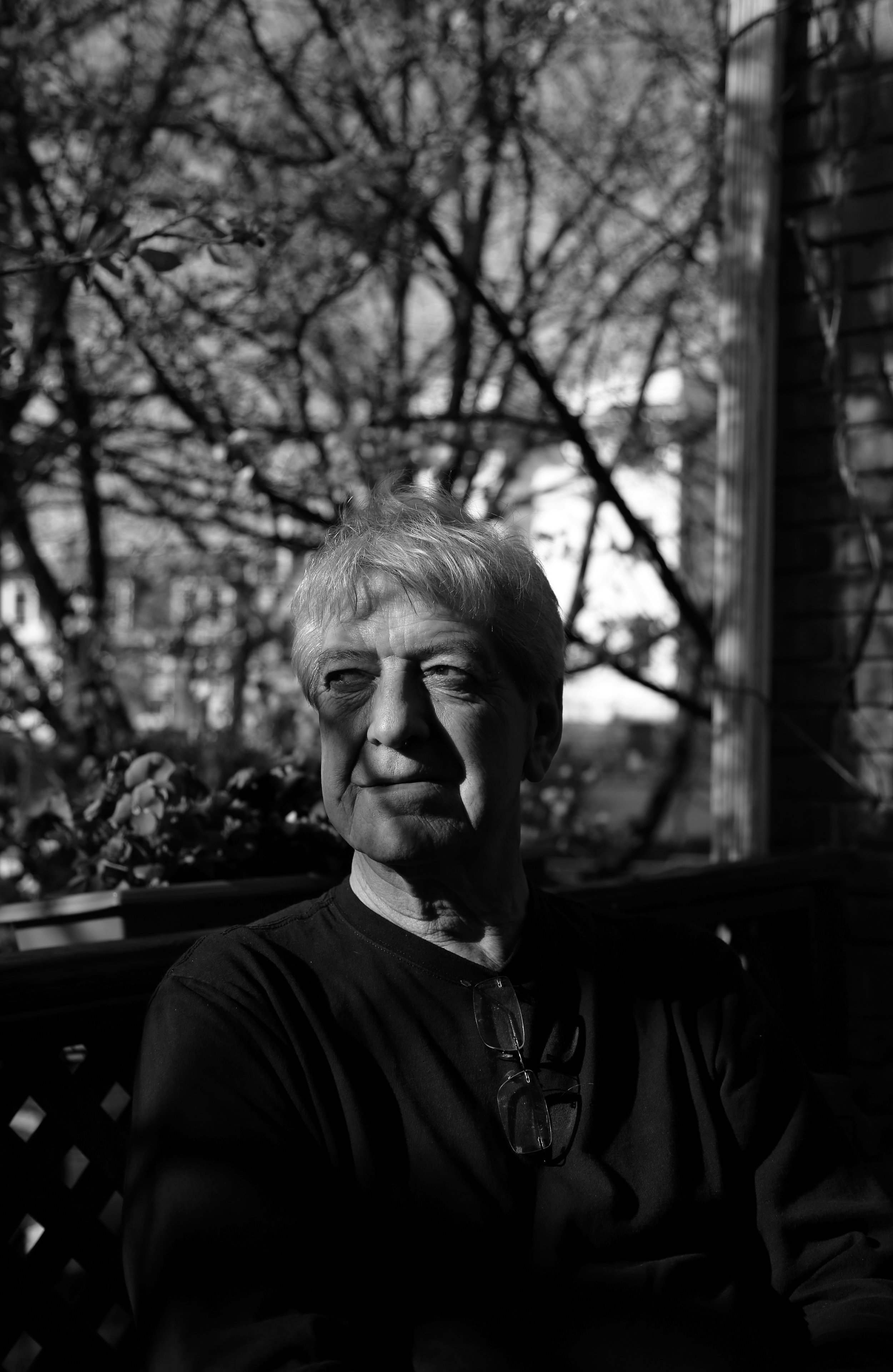
Dr. Anthony Martinez sits outside Joseph's House, a hospice for homeless men and women with HIV and cancer. Martinez is a retired Navy doctor who volunteers at Joseph's House. He also provides medical care to Washington, D.C.'s homeless population.
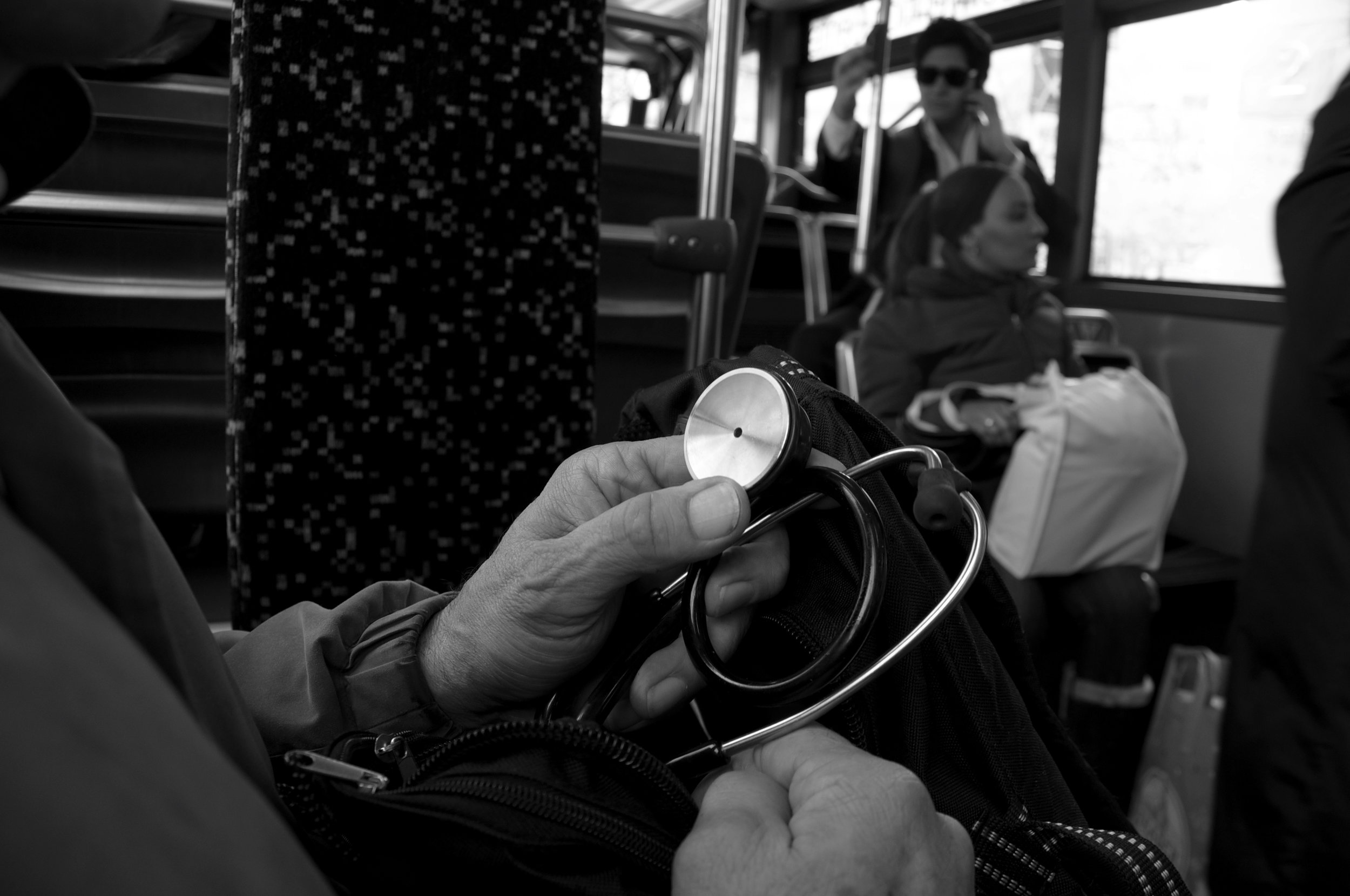
“You cover a lot of ground riding the bus,” Dr. Anthony Martinez says. The physician, who is on his way to give house calls to those with no homes, reveals the contents of his backpack (a stethoscope, blood pressure monitor, and anti-bacterial wipes, to name a few) he brings with him into the field.
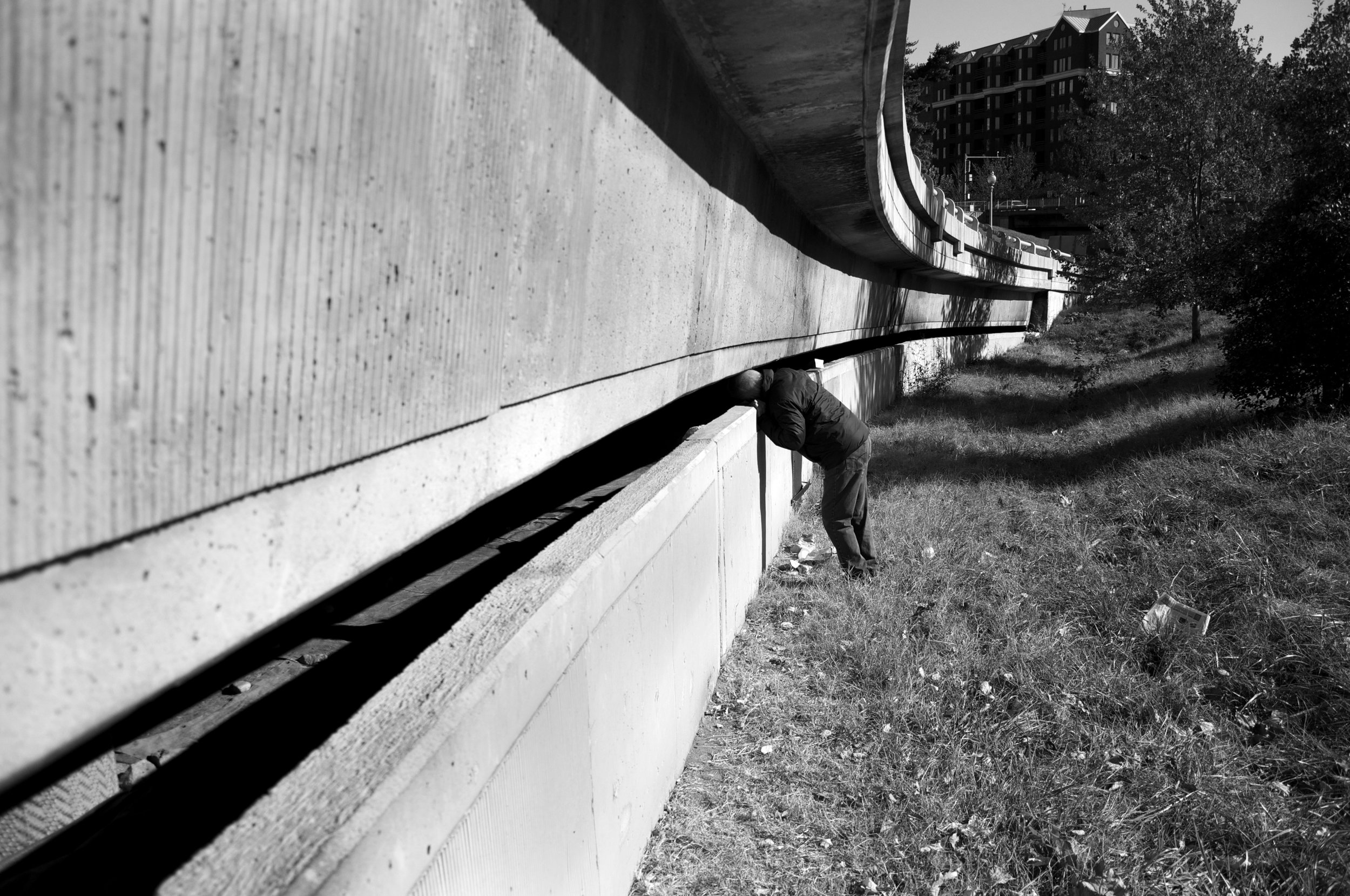
Making his daily rounds, Dr. Anthony Martinez sticks his head into an overpass. Martinez checks on a homeless couple, Cliff and Melanie, who have constructed their own home below Whitehurst Freeway.
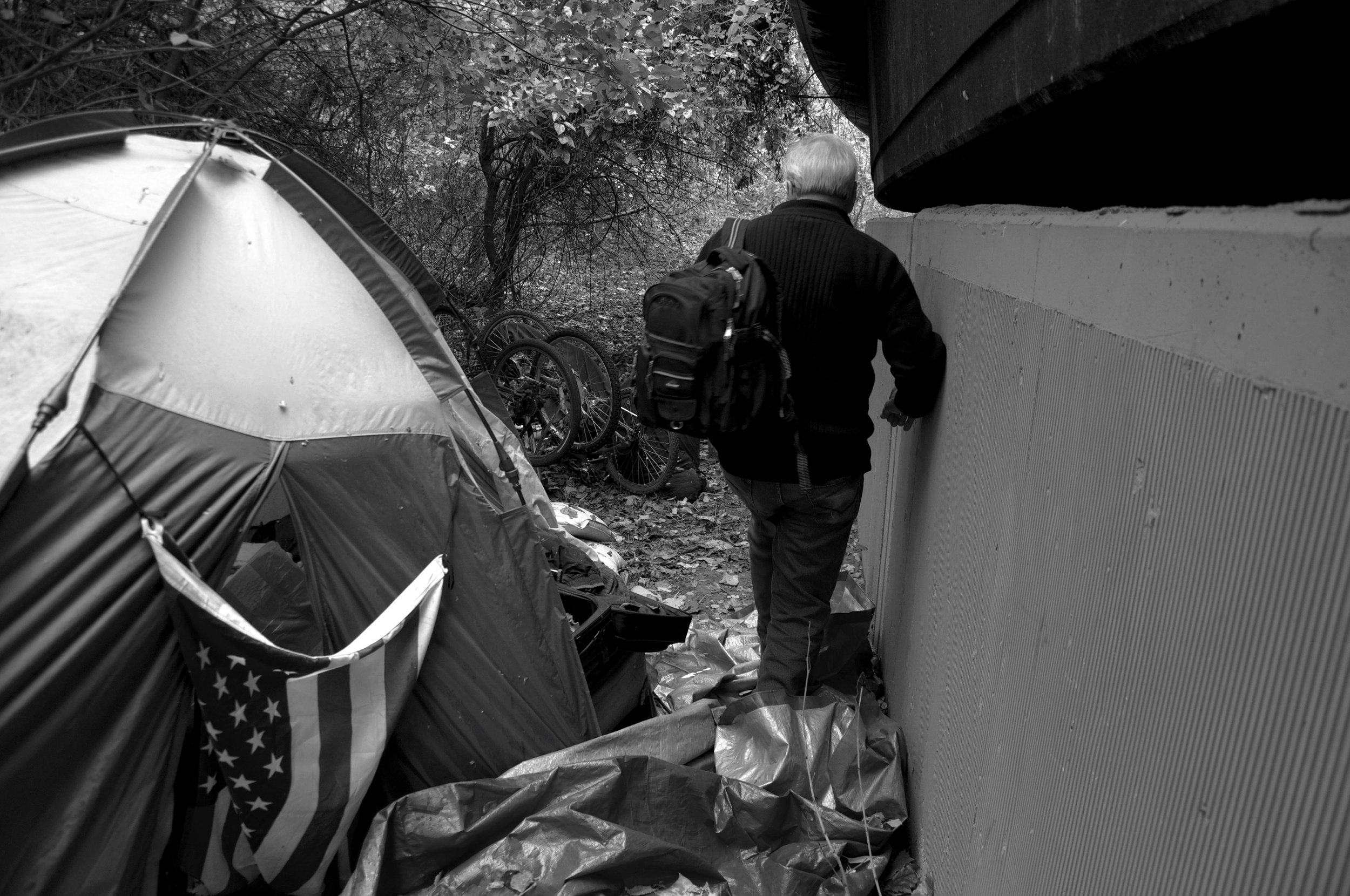
Cliff and Melanie, a homeless couple living underneath the freeway, are nowhere to be found, so Dr. Anthony Martinez continues his search for the couple. No one is in the tent and there is hardly a trace of activity.
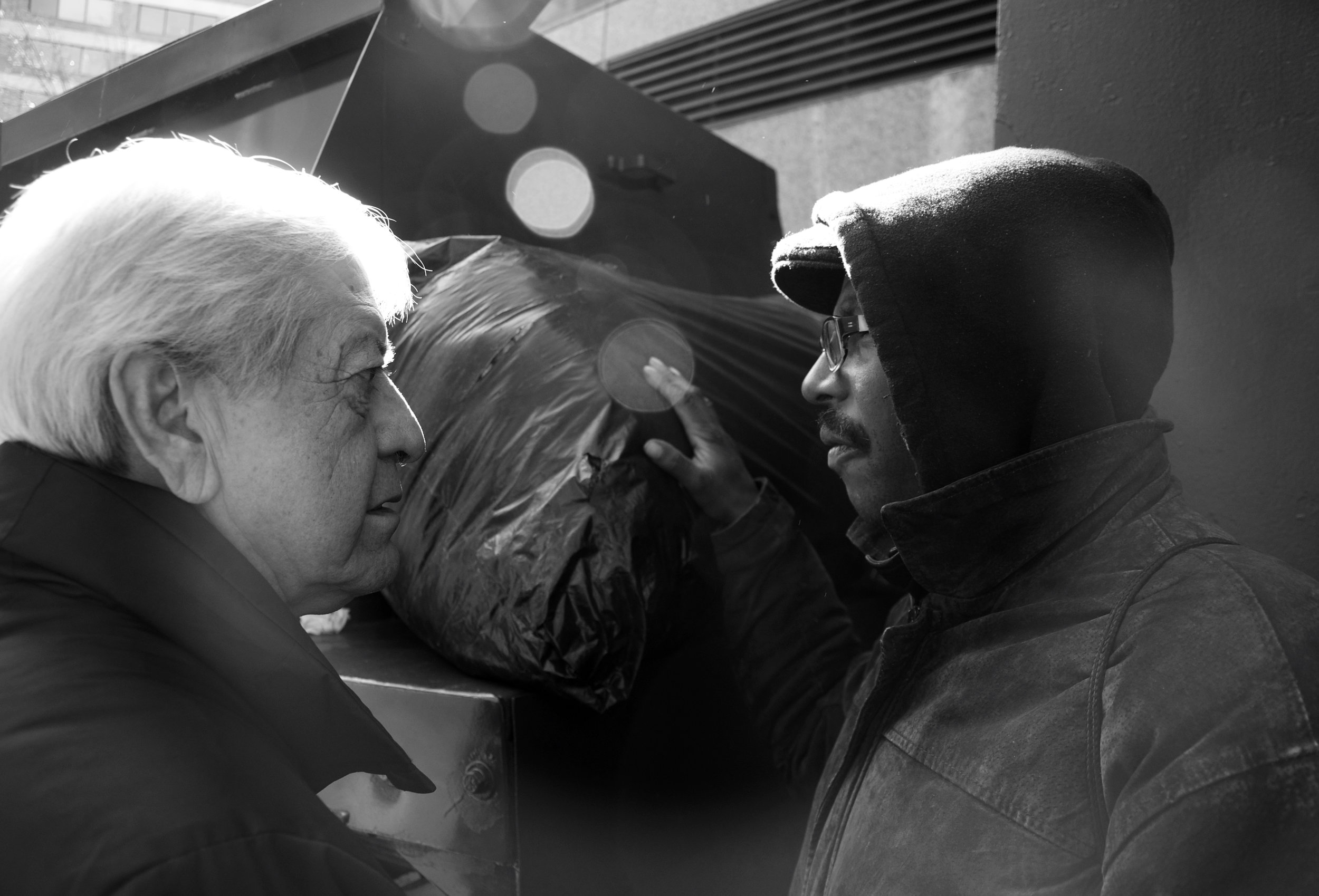
Dr. Anthony Martinez asks a homeless man about his health in front of the Cathedral of St. Matthew the Apostle on Rhode Island Avenue. The homeless man sleeps in front of the church and survives on the money he makes from panhandling before and after church services.
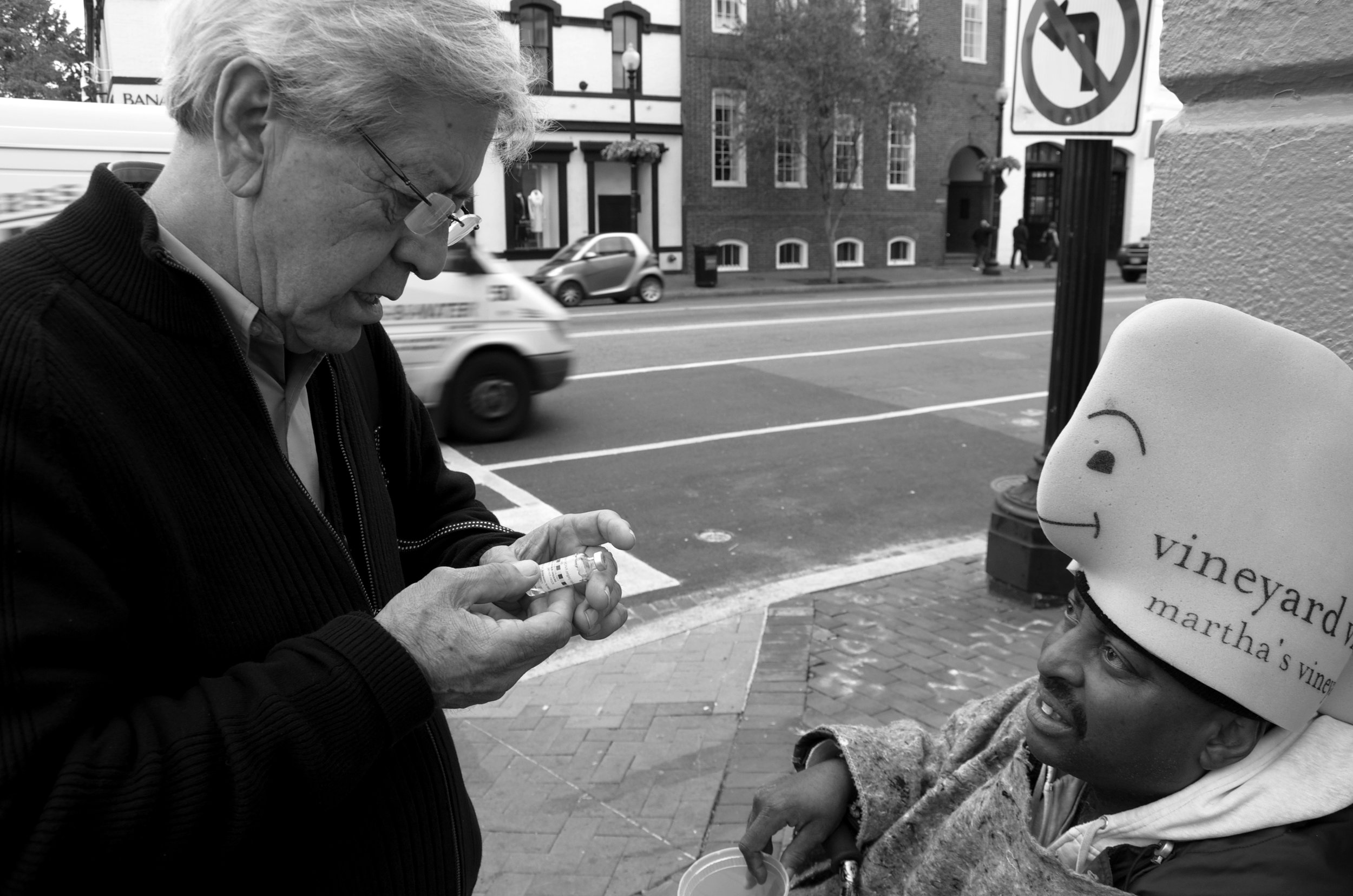
John Sullivan, a diabetic, panhandles in Georgetown on the intersection of M Street and Wisconsin Avenue. Sullivan tells Dr. Anthony Martinez his insulin is running low, and the doctor promises to bring him a new supply the next day.
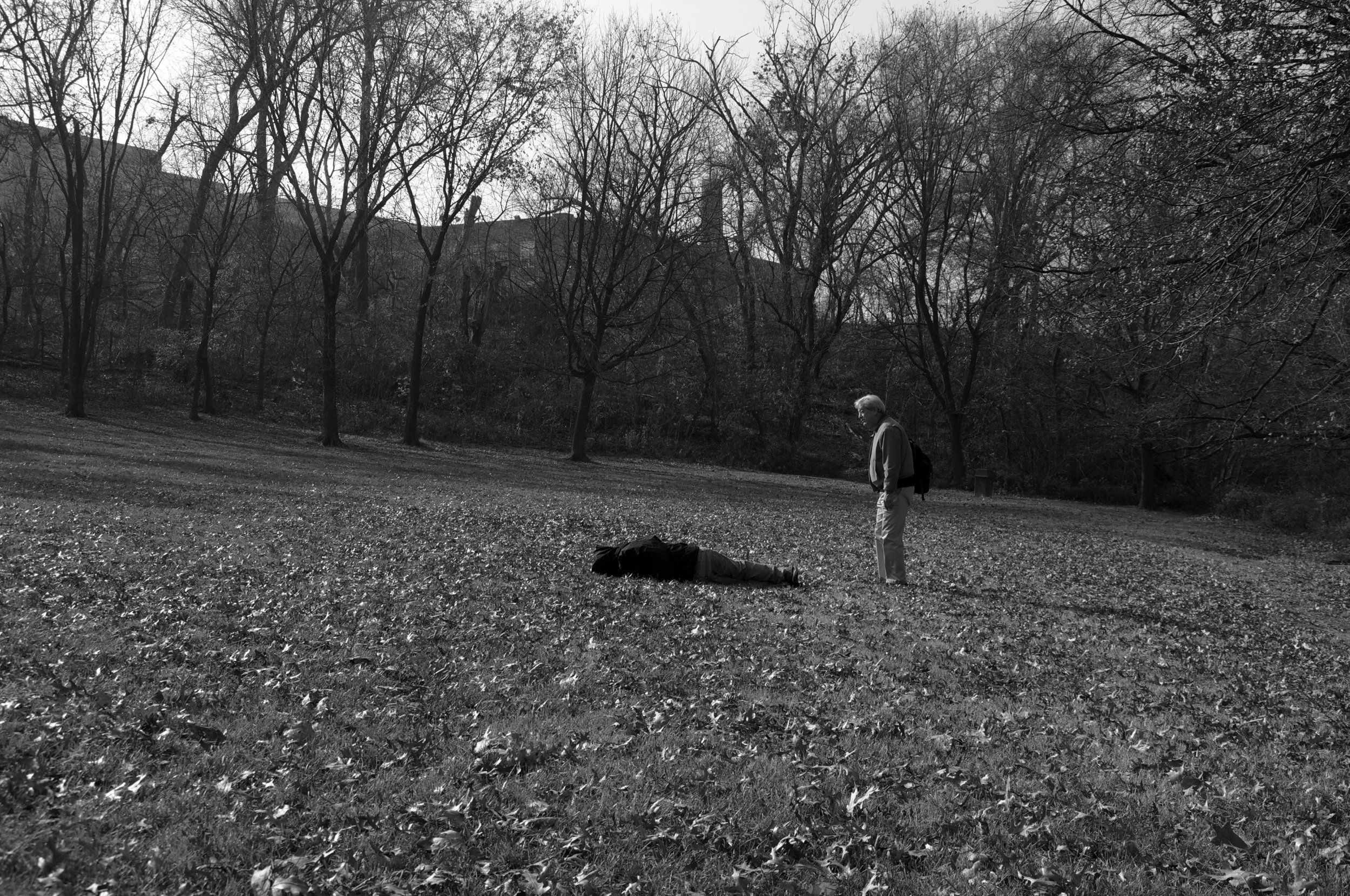
A homeless amputee veteran rests in Rock Creek Park on a warm fall day. Dr. Anthony Martinez goes through his usual routine and asks, “Are you doing okay? Are you healthy? Need something to eat?” The veteran claims he is “doing just fine” and goes back to sleep.
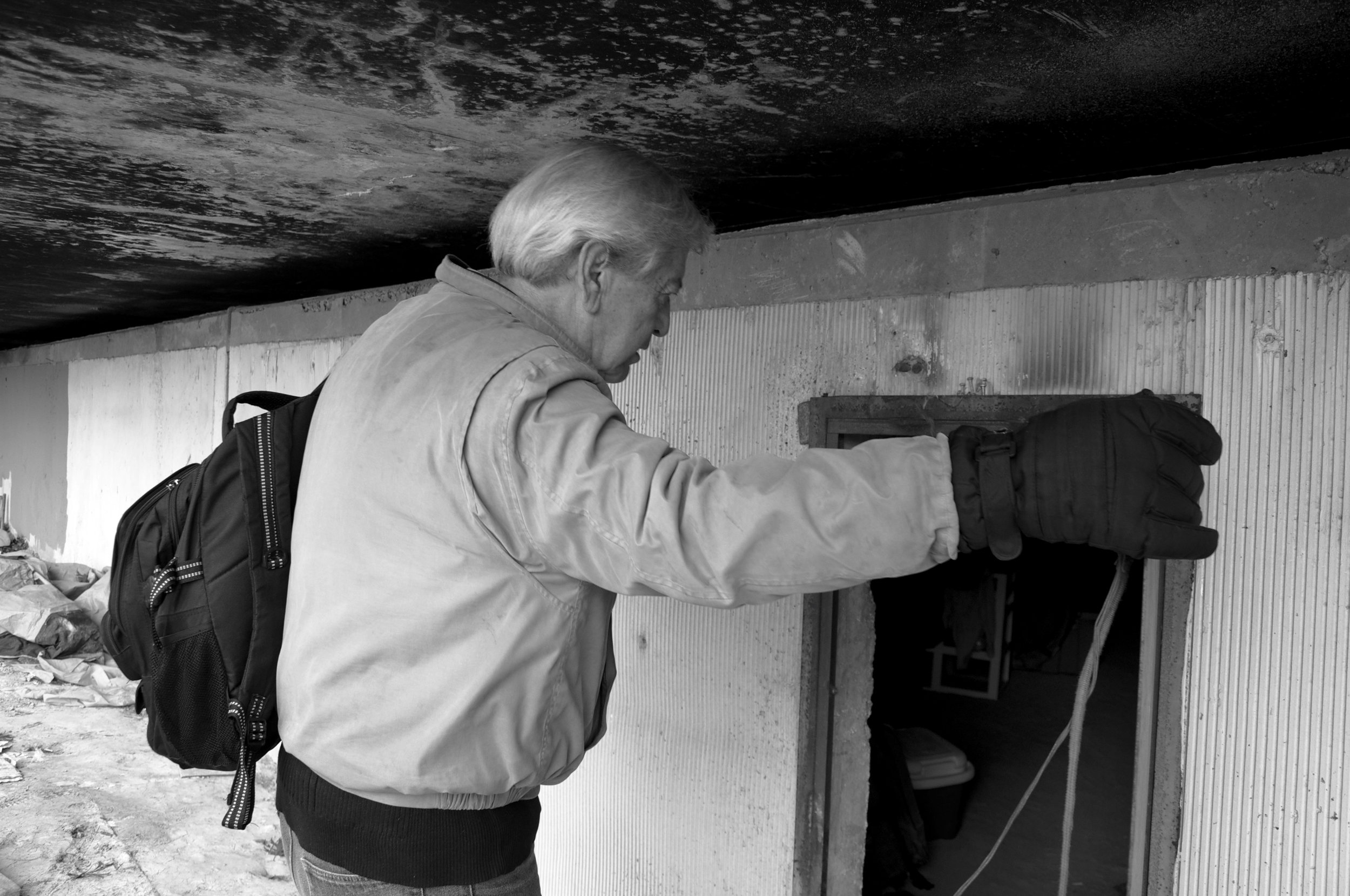
“Is anyone home?” Dr. Anthony Martinez calls as he opens a door underneath an overpass. Mattresses, chairs, clothes, and bottles line the space, but no one responds.
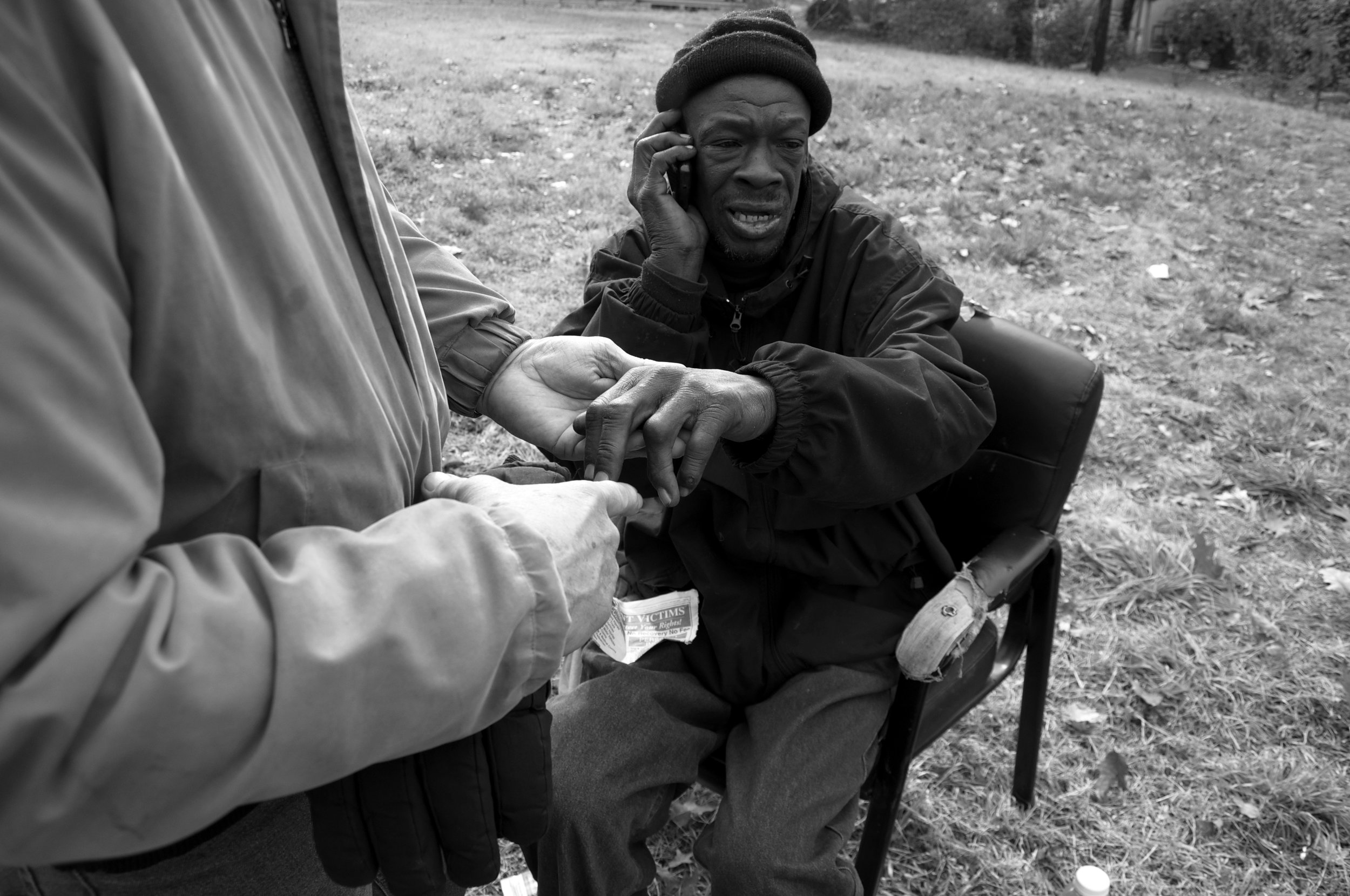
Willie Brown calls a lawyer as Dr. Anthony Martinez examines the homeless man. Brown fell down an open sewer, scraped his hands and legs, and sprained his knee.
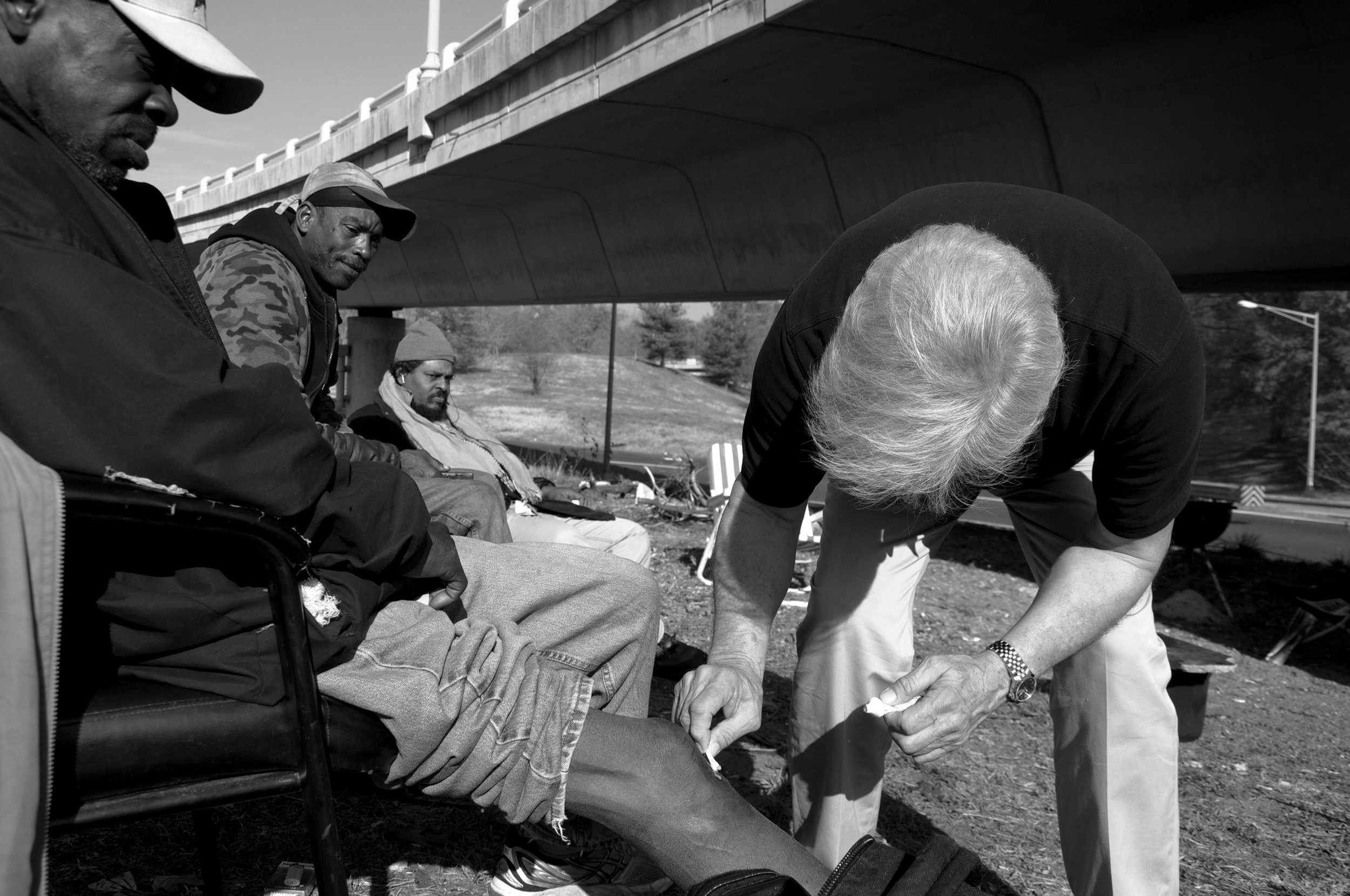
Sitting below an overpass, Willie Brown and his two friends listen to the radio and watch Dr. Anthony Martinez apply Neosporin to Brown's cut knee. Brown injured himself after he fell down an open sewer and plans to sue PEPCO.
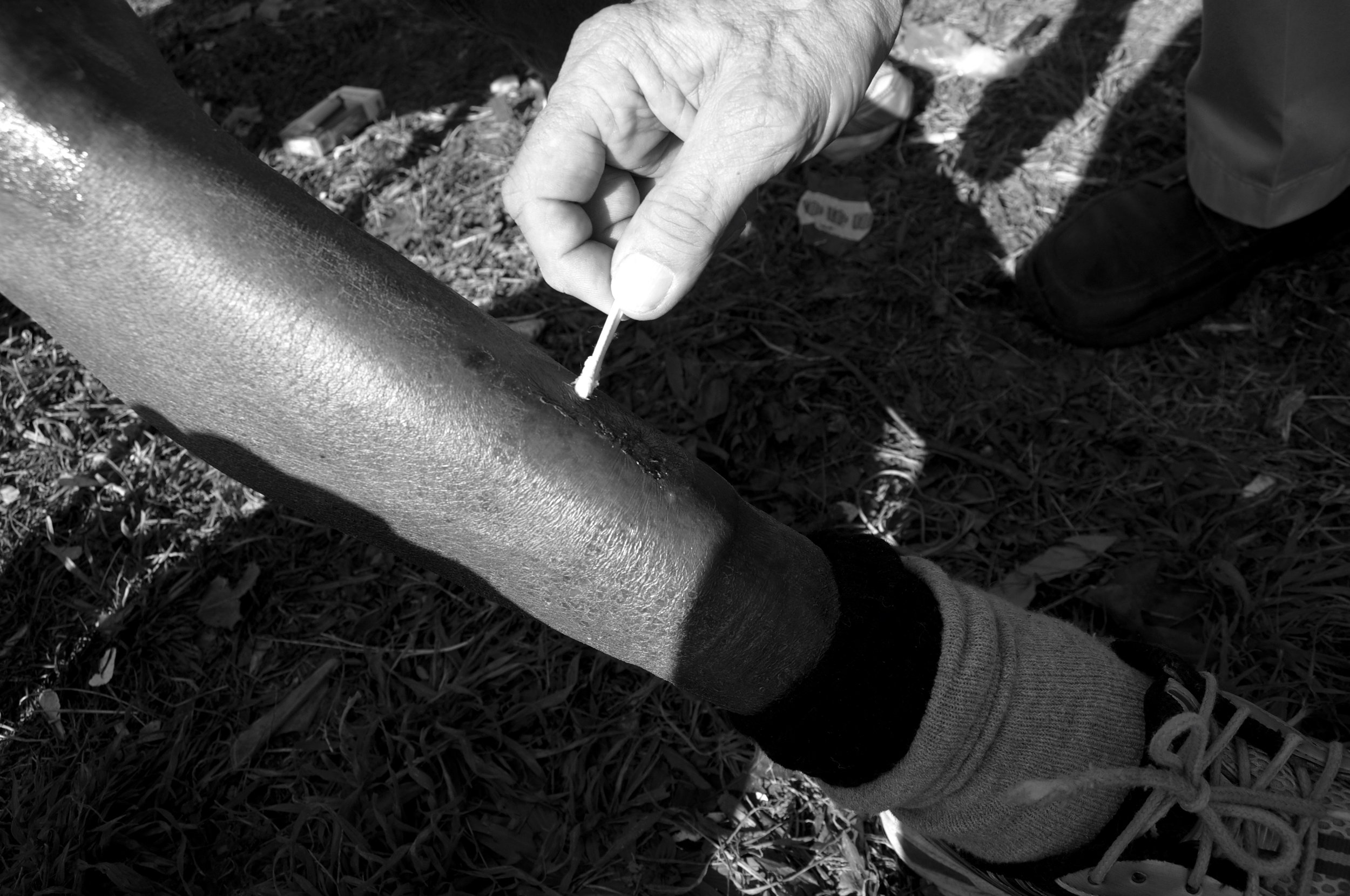
Dr. Anthony Martinez applies Neosporin to Willie Brown's leg. Brown injured himself when he fell down an open sewer.
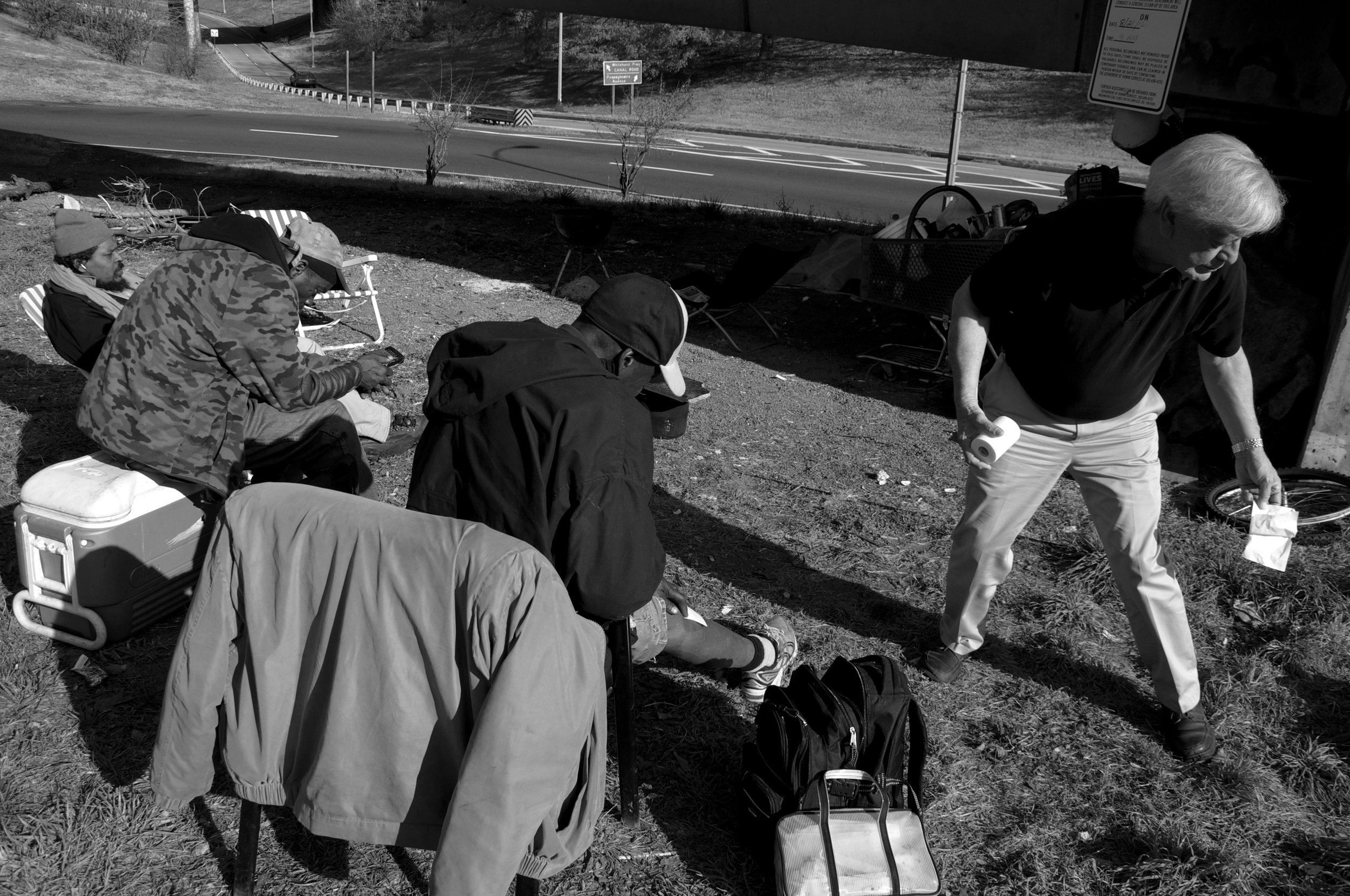
Dr. Anthony Martinez finishes applying antibiotic ointment to Willie Brown's leg. Brown fell down an open sewer, scraped his hands and legs, and sprained his knee.
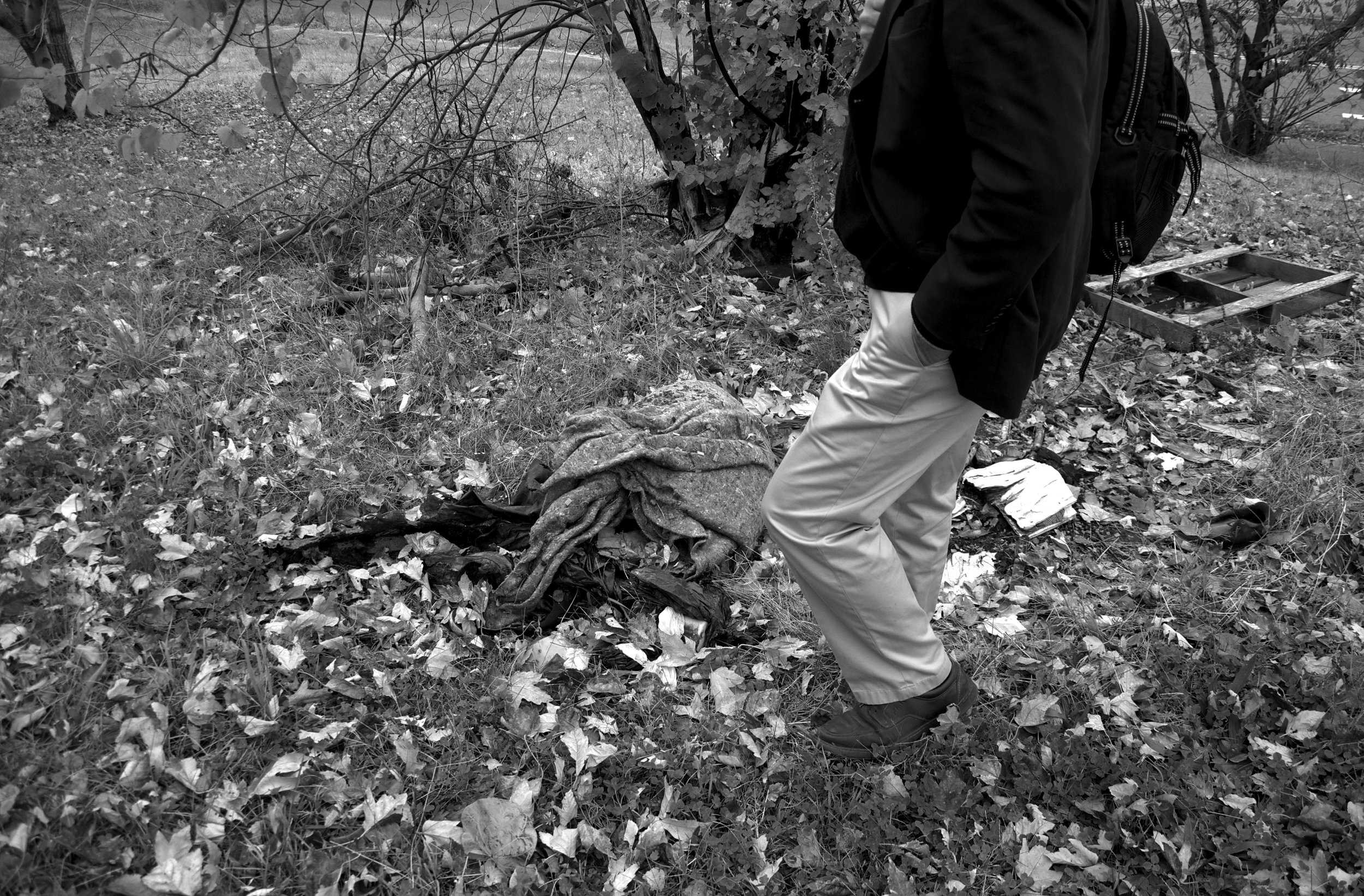
Dr. Anthony Martinez walks along Rock Creek Parkway.
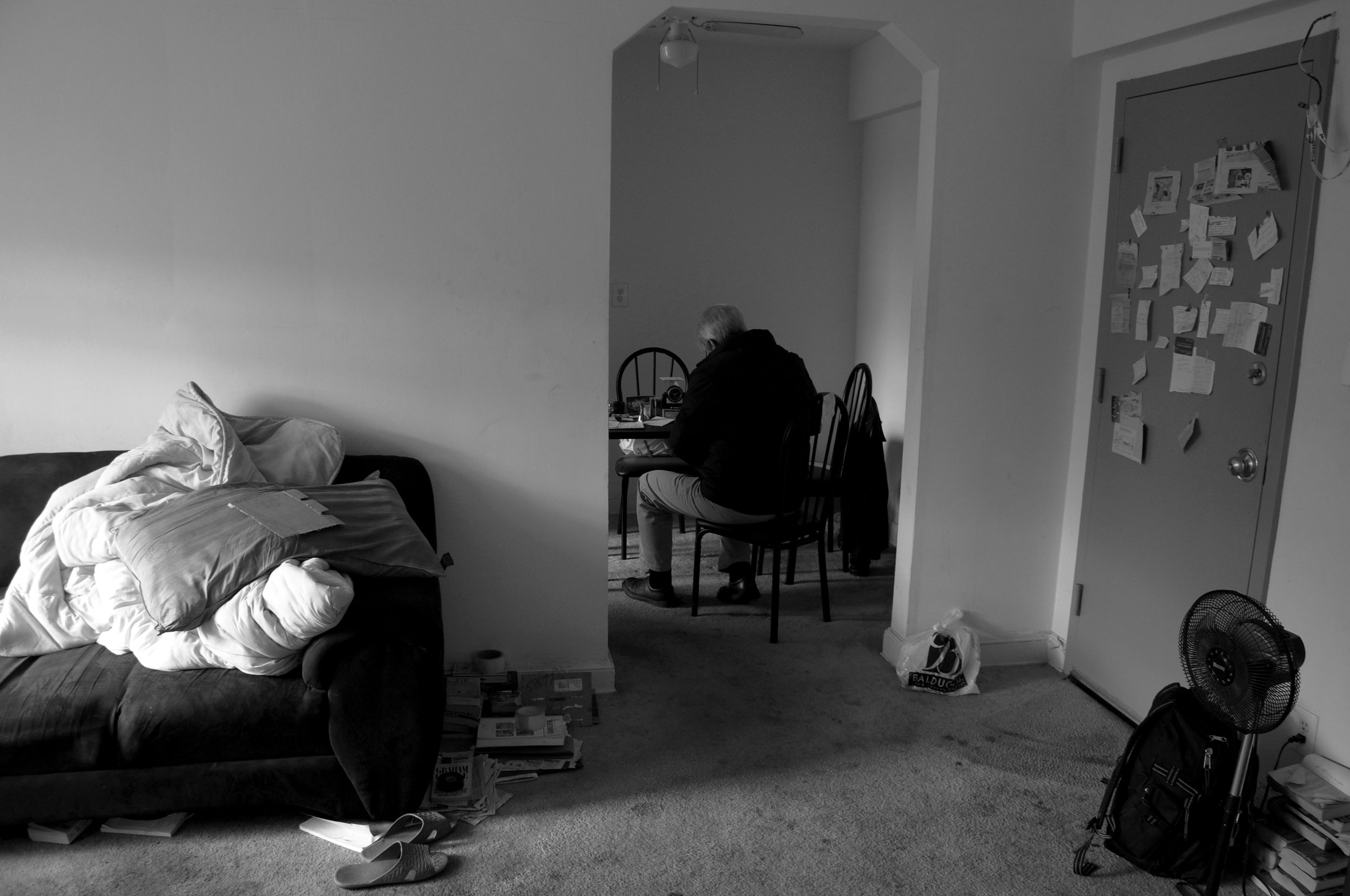
Dr. Anthony Martinez visits Charles Bowman's apartment, hoping the 61-year-old alcoholic who spends most of his time on the street is safe and out of trouble. Sitting down at the kitchen table, Martinez begins to write a note — one he hopes Bowman will read.
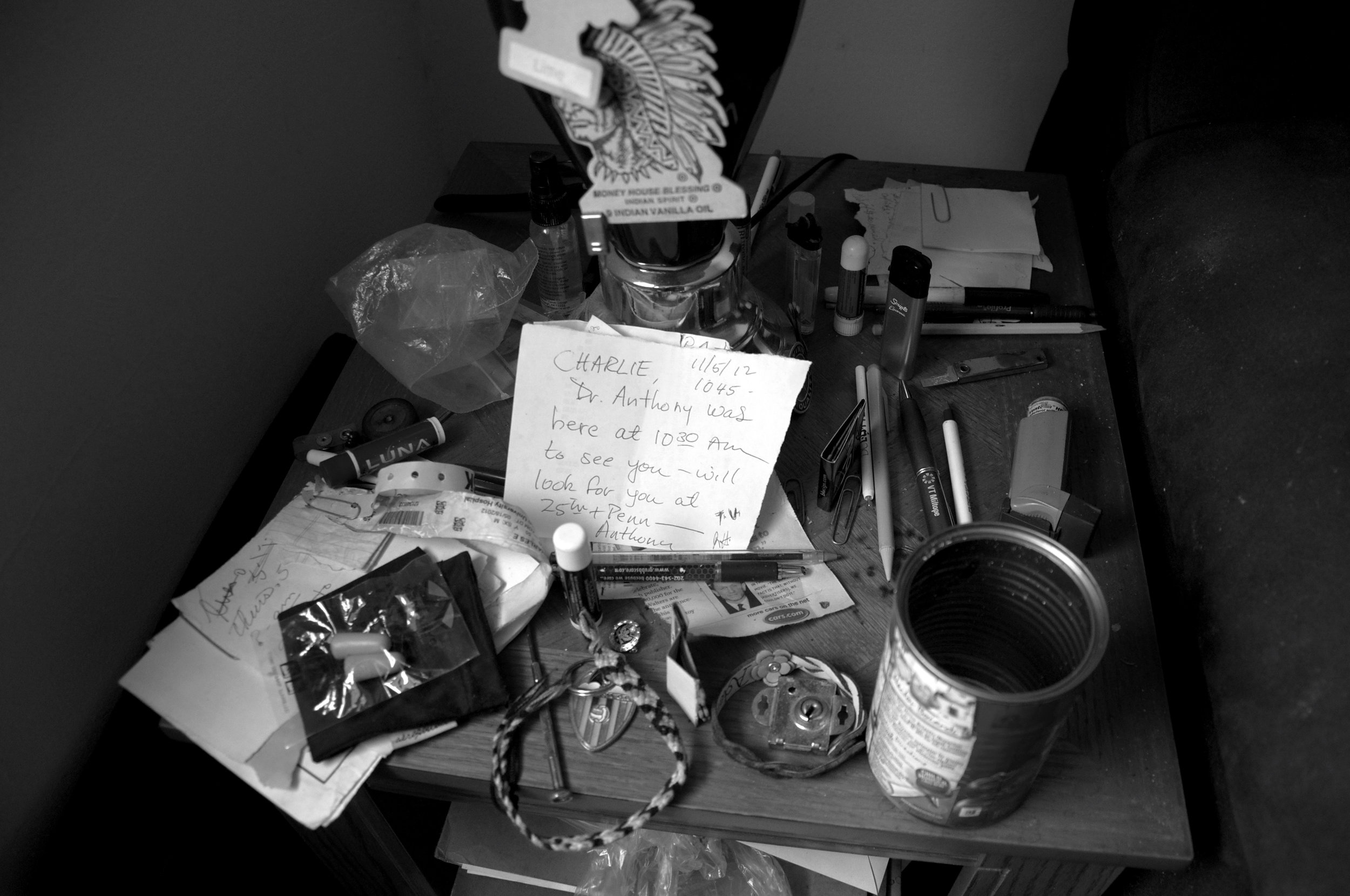
To make sure Charles Bowman is alive and healthy, Dr. Anthony Martinez visits Bowman's apartment another time and again leaves a note. “Dr. Anthony was here at 10:30AM to see you,” it says, “Will look for you at 25th and Penn.” Although Martinez set up the apartment for Bowman, the chronic drinker spends most of his time sitting on a bench at Pennsylvania Avenue and 25th Street.
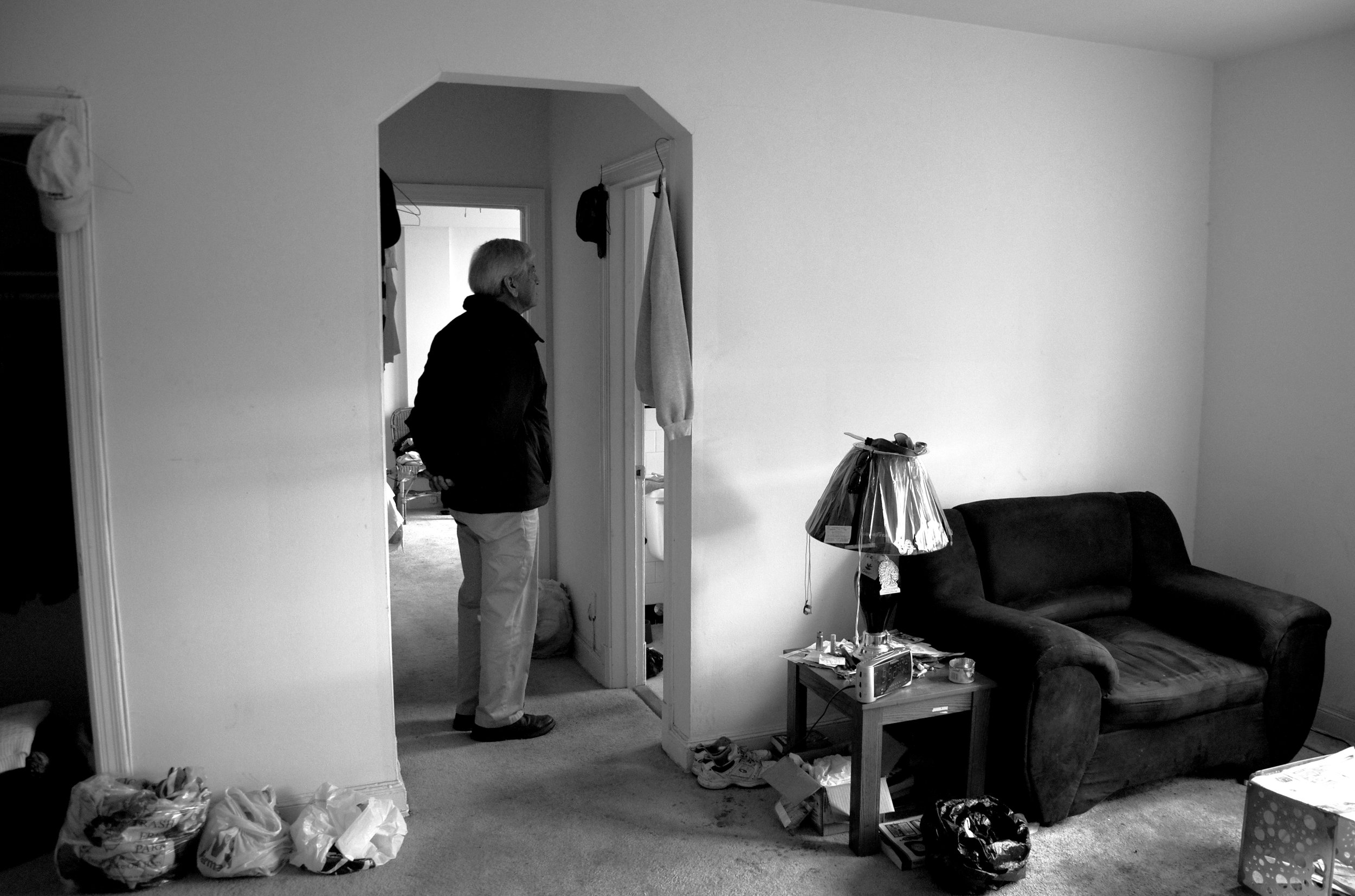
Dr. Anthony Martinez looks around Charles Bowman's apartment. Martinez helped set up the apartment for Bowman, but the alcoholic prefers to spend his time outside on a bench at Pennsylvania Avenue and 25th Street.
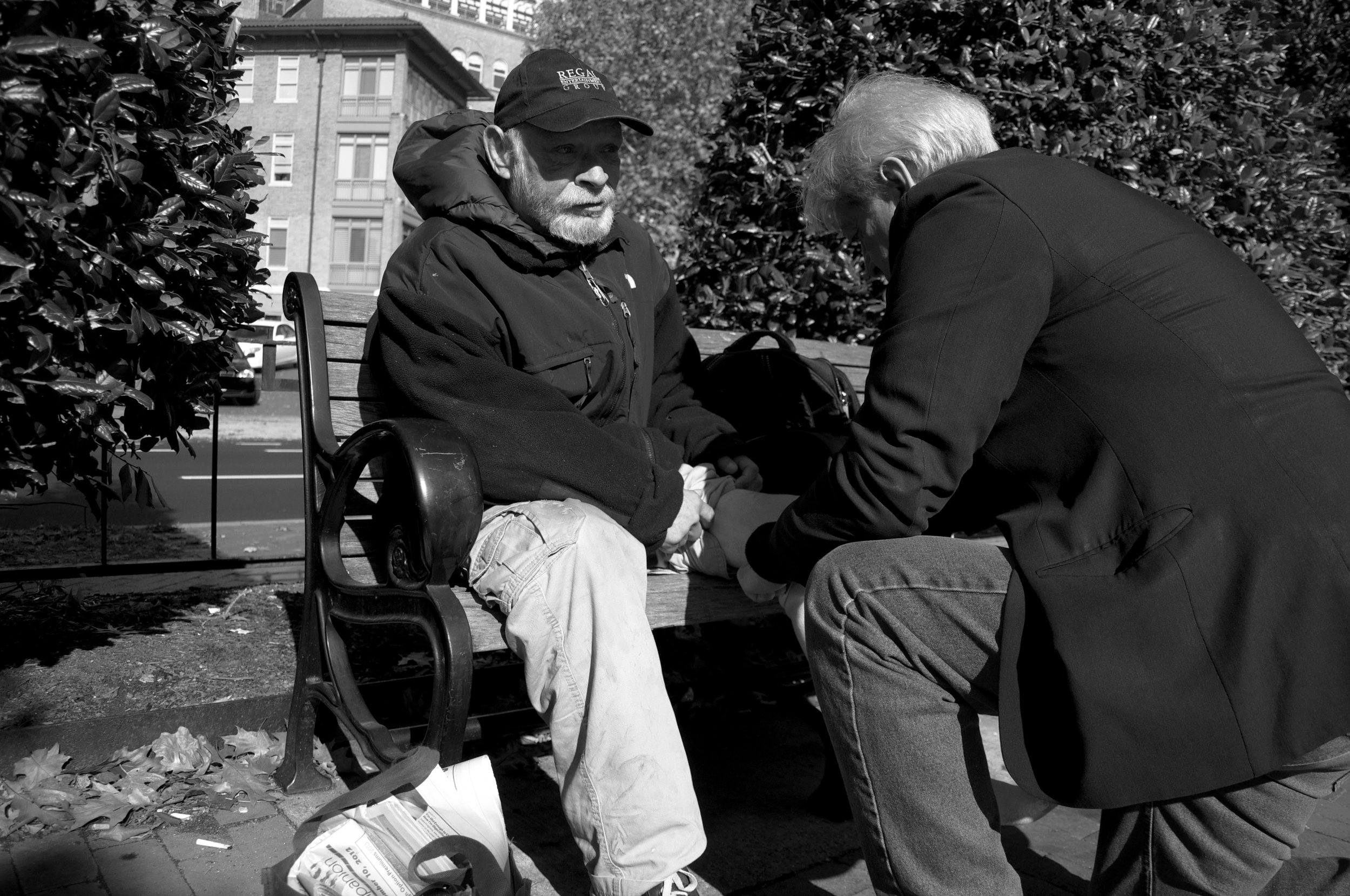
Dr. Anthony Martinez finds Charles Bowman at Pennsylvania Avenue and 25th Street. Martinez examines his leg, using his fingers to massage the tendons. He concludes the leg is sprained and a brace will help Bowman walk more steadily. In the past, a bus hit Bowman as the alcoholic stumbled drunkenly across an intersection. The hospital refused to take him because he was so inebriated.
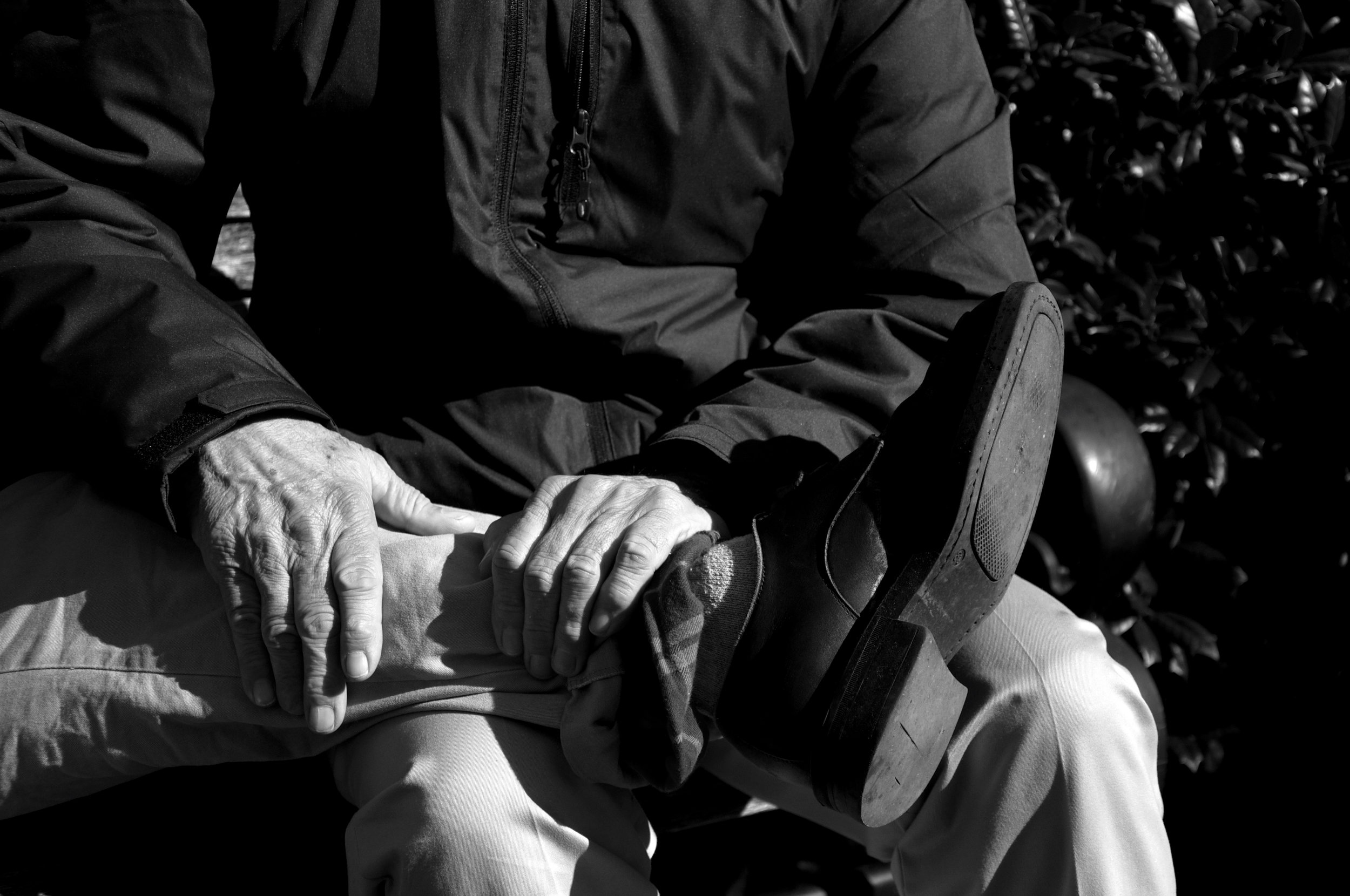
Dr. Anthony Martinez applies a brace around Charles Bowman's sprained knee. “This should help you walk. You'll get more support,” the doctor tells Bowman who is suffering from leg pain.
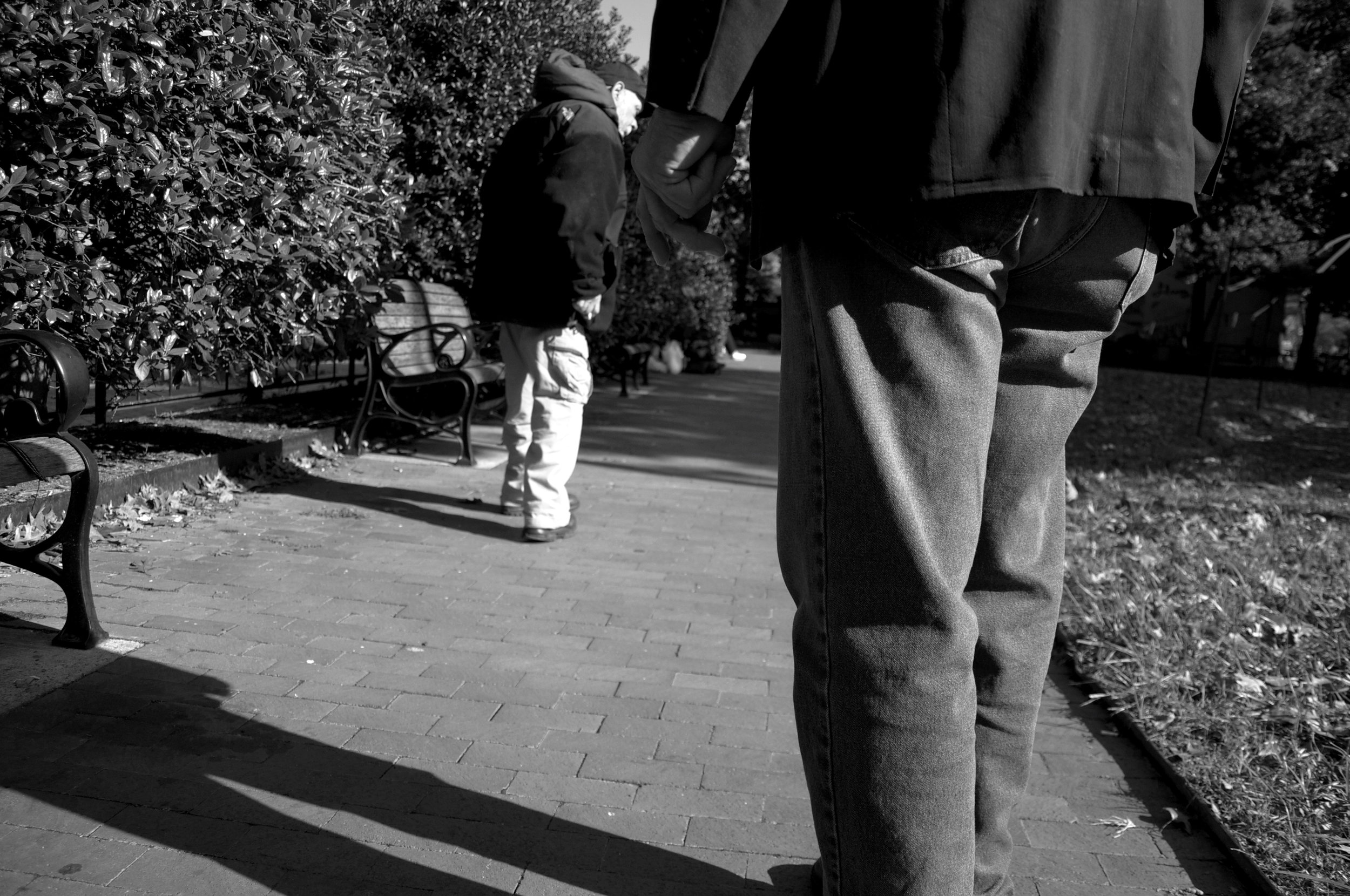
Glancing behind him, Charles Bowman walks away from Dr. Anthony Martinez, the retired doctor who supplied his new knee brace. The doctor tells Bowman he needs to remove the brace in a day or two so he won't experience a loss of circulation. Martinez wonders if Bowman will remember.
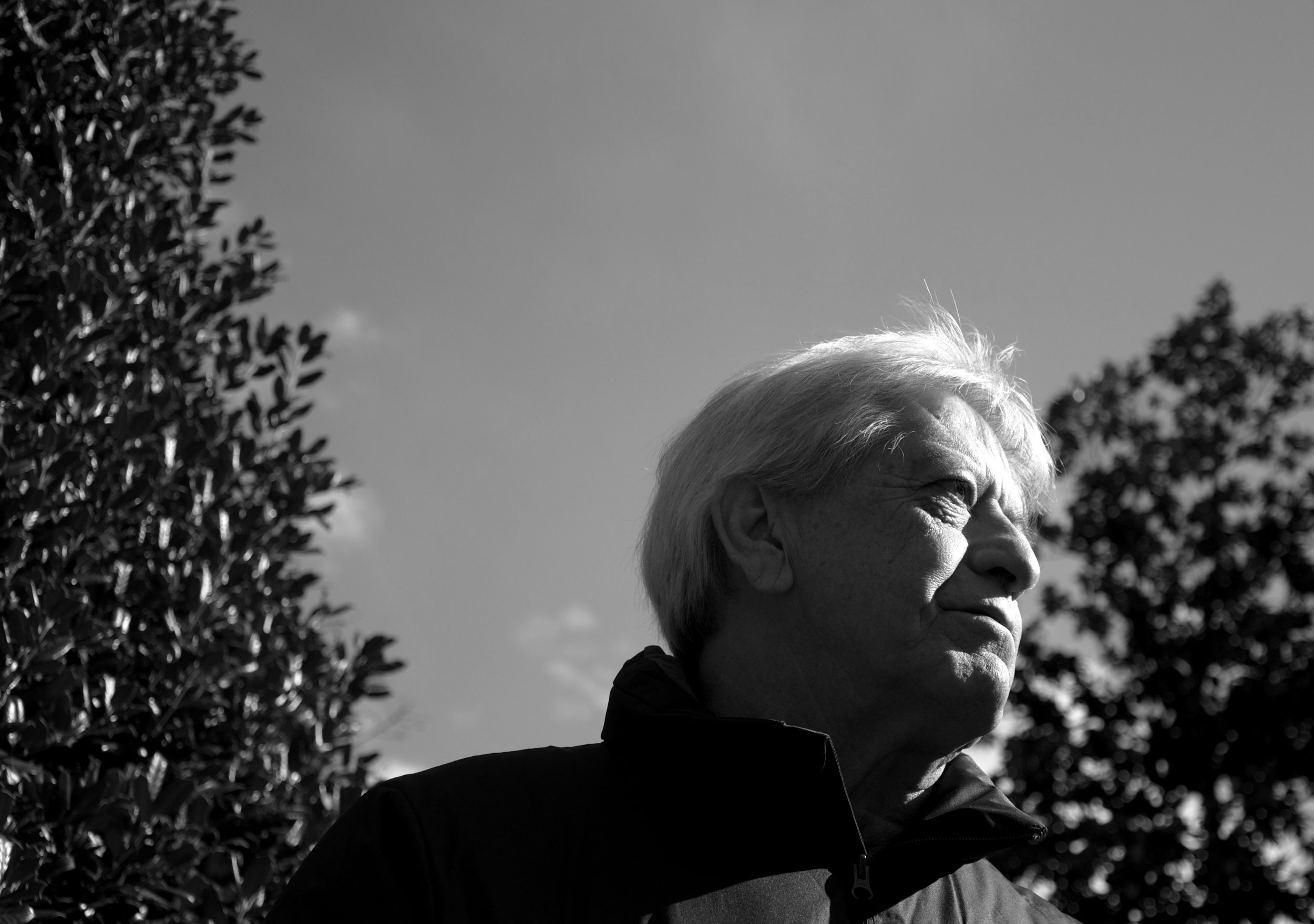
Dr. Anthony Martinez watches as Charles Bowman hobbles along with his new knee brace.
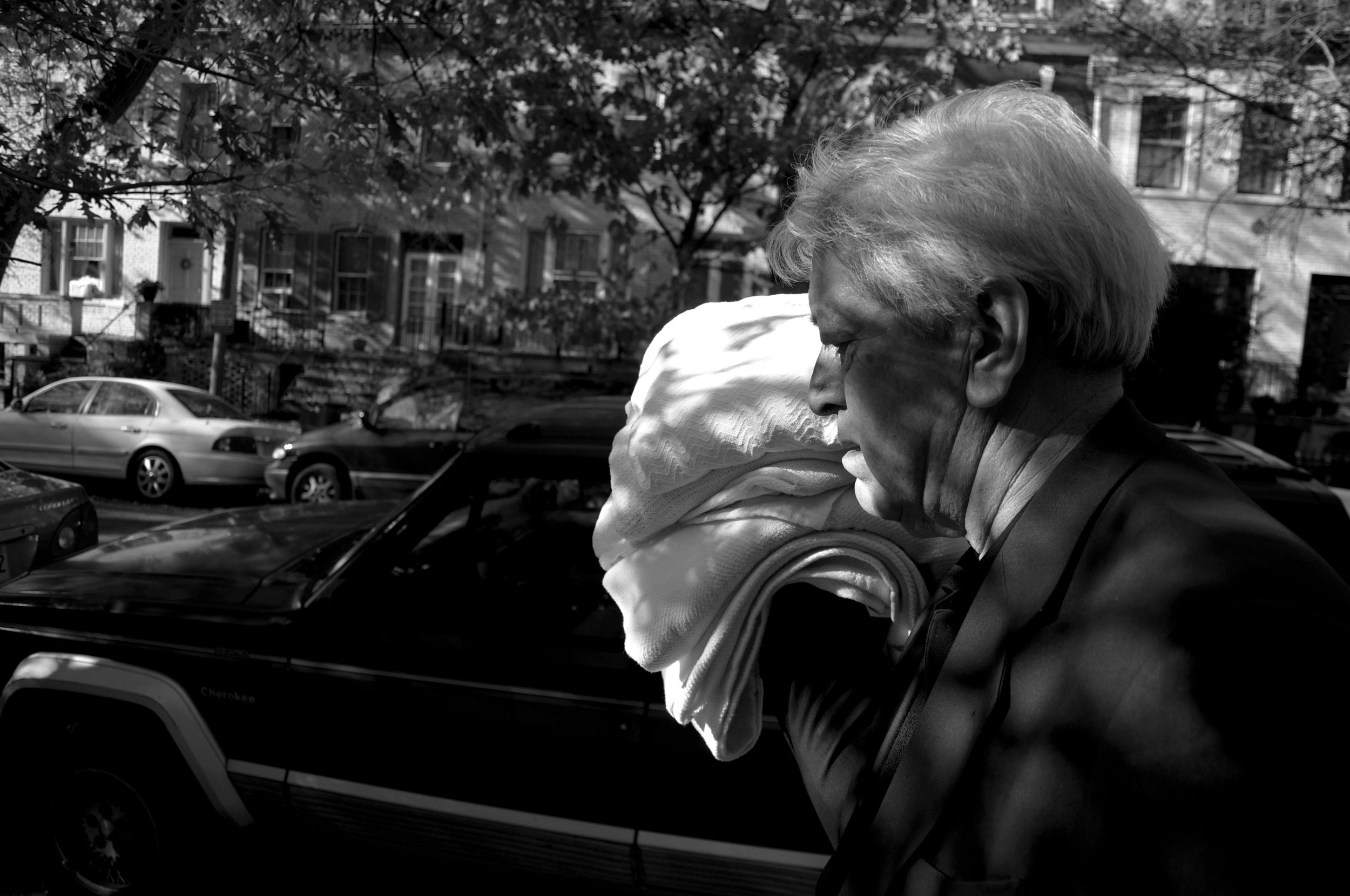
Dr. Anthony Martinez gathers extra blankets from Joseph's House, a homeless hospice in Adams Morgan.
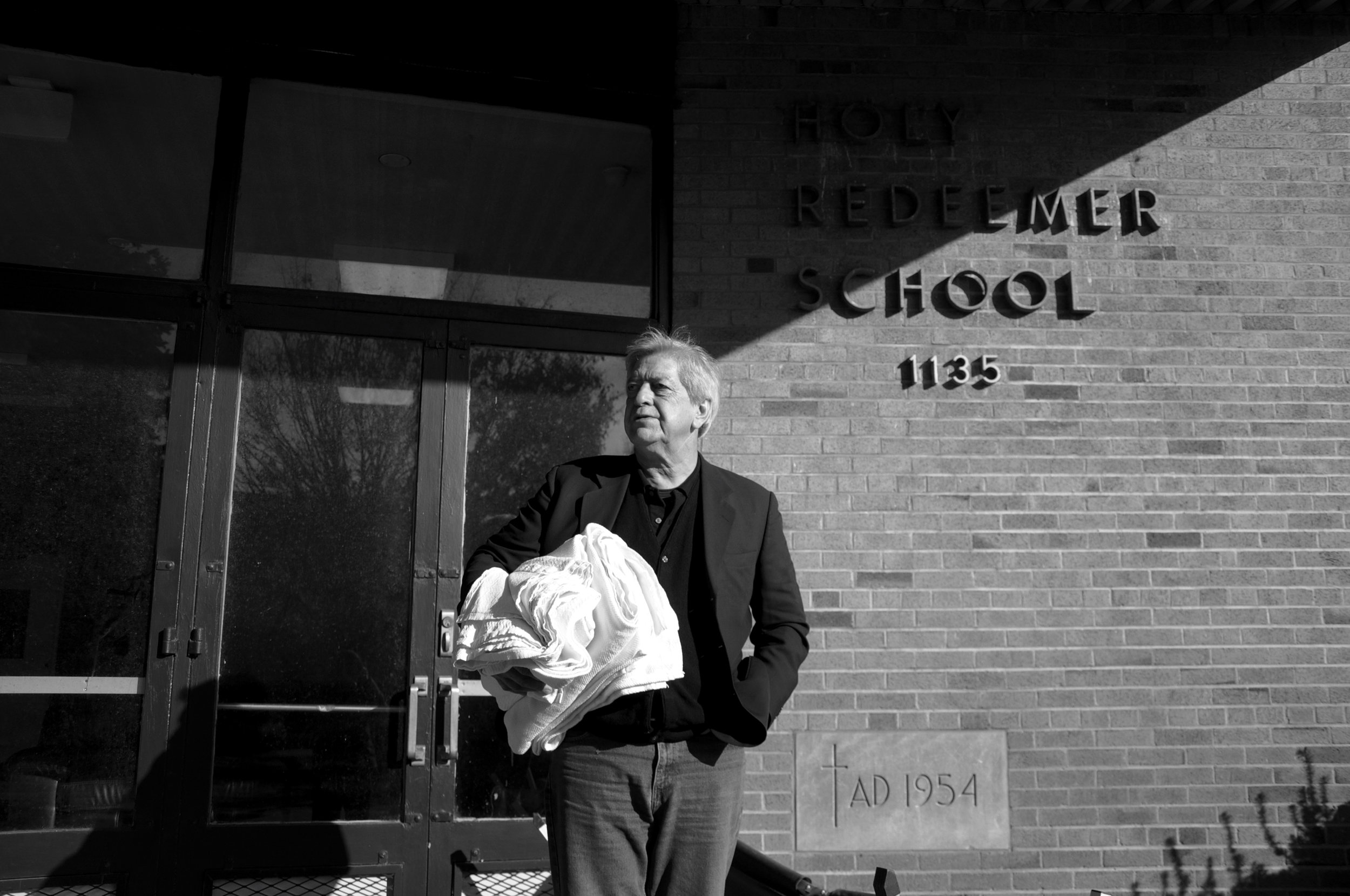
Ed and Cynthia, a homeless couple, live outside the Holy Redeemer Catholic School on New Jersey Avenue. Dr. Anthony Martinez delivers blankets to the couple, but Ed and Cynthia are not at the Church.
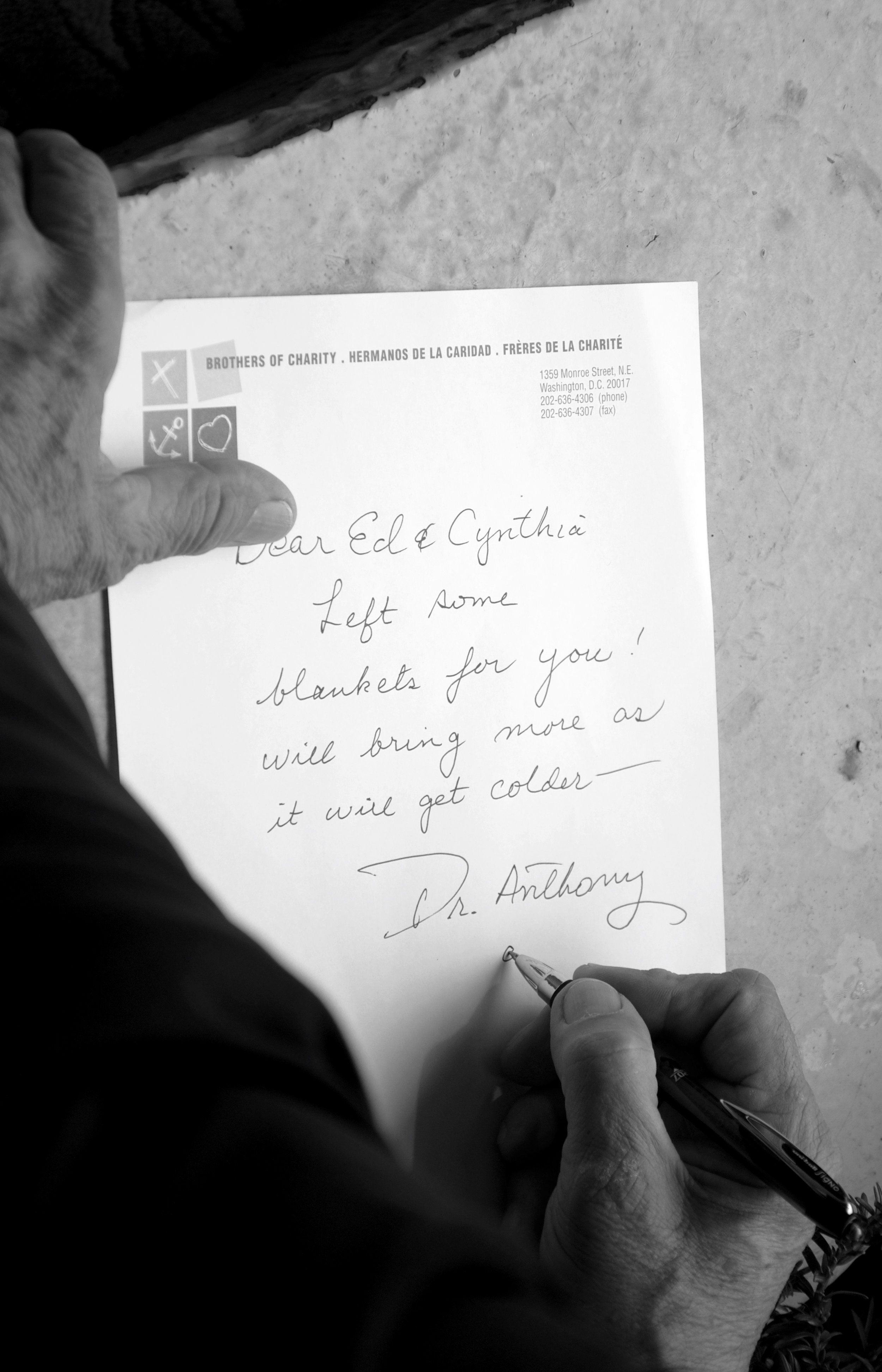
Dr. Anthony Martinez writes a note for Ed and Cynthia, the homeless couple who live outside the Holy Redeemer Catholic School. "Dear Ed & Cynthia," the note says. "Left some blankets for you! Will bring more as it will get colder — Dr. Anthony."

Dr. Anthony Martinez leaves a note for Ed and Cynthia. The two live outside the Holy Redeemer Catholic Church on New Jersey Avenue.
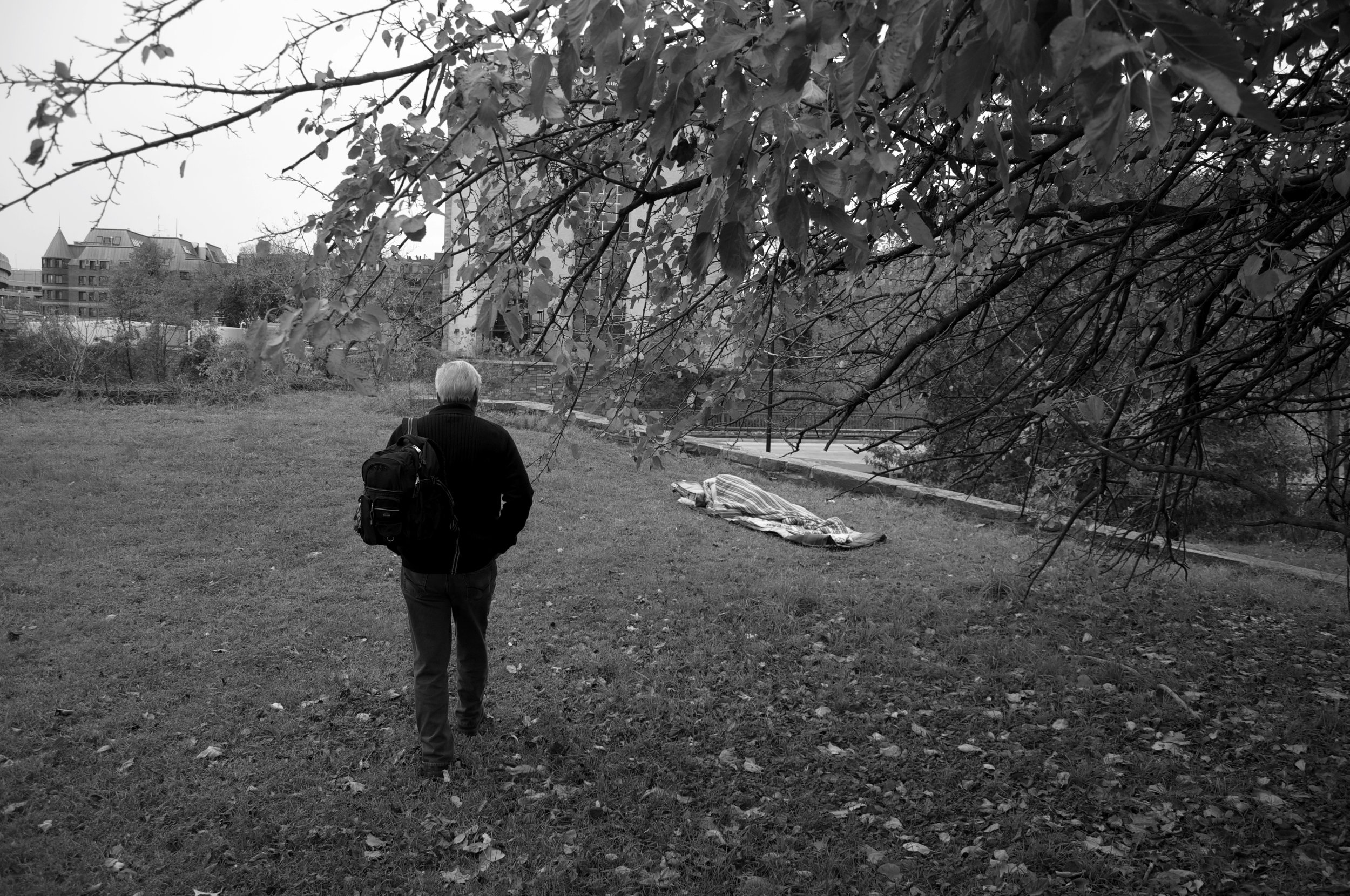
Dr. Anthony Martinez continues his search for homeless people who might need medical assistance. He approaches a sleeping homeless man overlooking Rock Creek Parkway.
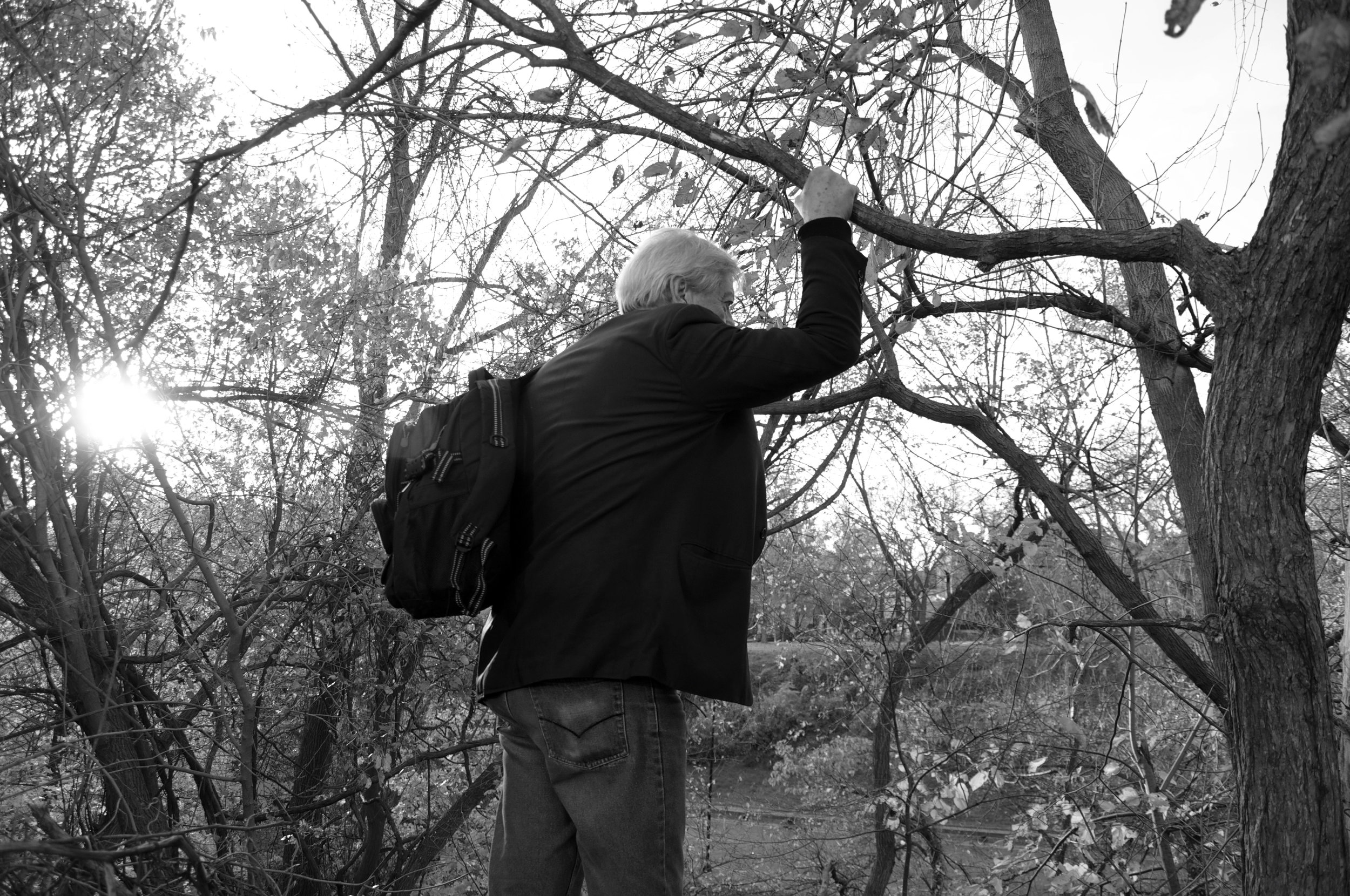
Dr. Anthony Martinez grabs onto a tree to steady himself as he looks around Rock Creek Park.